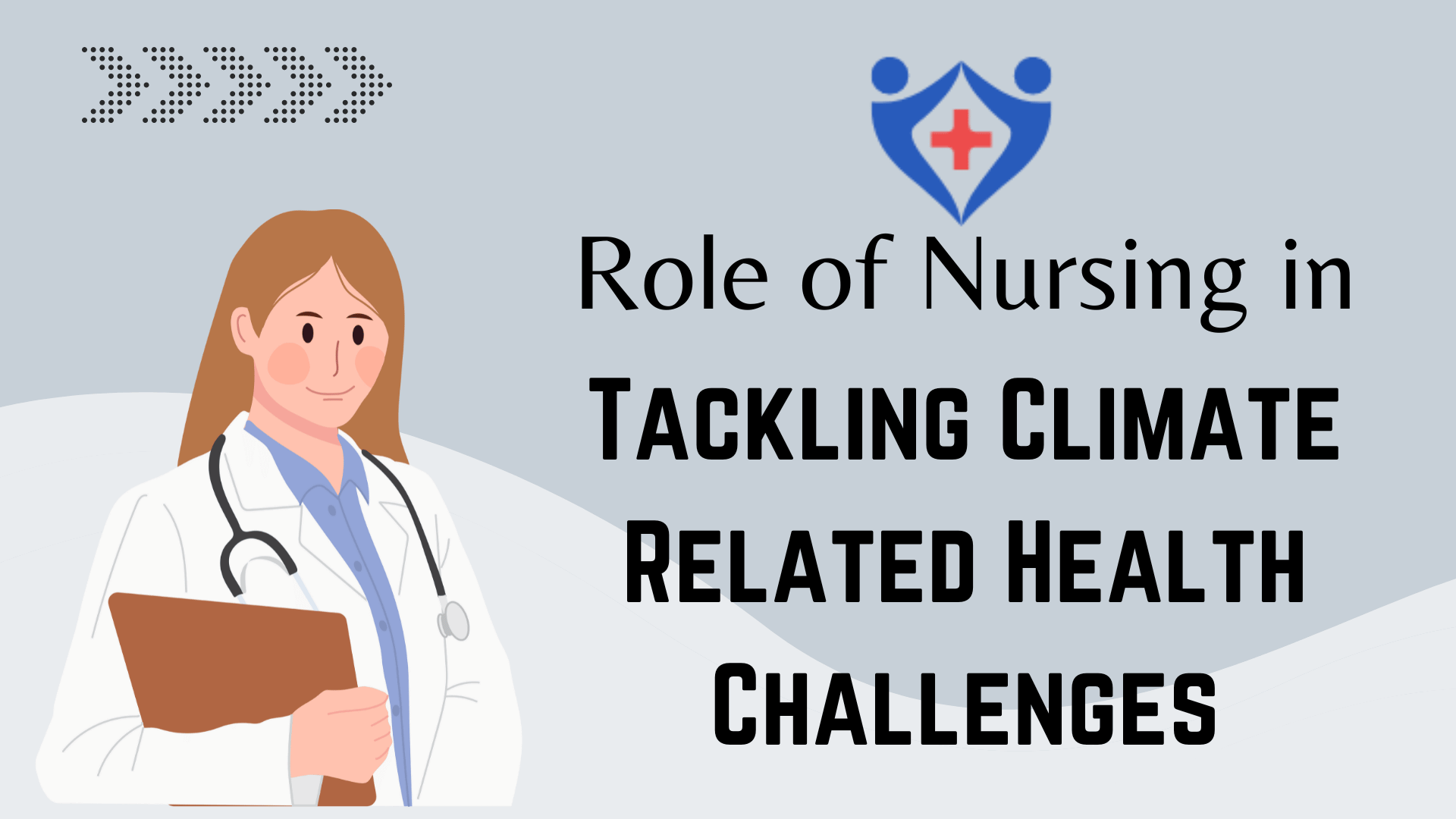In recent years, the world has witnessed a surge in climate-related health issues, ranging from heat-related illnesses to the spread of vector-borne diseases. Amidst this crisis, the significance of nursing in addressing these challenges cannot be overstated. Nurses, as frontline healthcare providers, play a pivotal role in mitigating the adverse health effects of climate change. This article delves into the crucial role of nursing in addressing climate-related health issues, exploring its importance, challenges, and potential solutions.
The Intersection of Nursing and Climate Change
Nursing Expertise in Public Health
Nurses are uniquely positioned at the intersection of healthcare and public health. With their extensive training in preventive care, health promotion, and community outreach, nurses possess the knowledge and skills necessary to address the complex health challenges posed by climate change. From conducting health assessments to developing tailored interventions, nurses play a key role in safeguarding public health in the face of environmental threats.
Adaptation and Resilience
Climate change poses significant challenges to healthcare systems worldwide, including extreme weather events, changing disease patterns, and resource scarcity. Nurses are instrumental in building adaptive capacity and resilience within healthcare settings to effectively respond to these challenges. By advocating for sustainable healthcare practices, implementing disaster preparedness plans, and fostering community partnerships, nurses contribute to the resilience of healthcare systems in the face of climate-related disruptions.
Table: Climate Related Health Issues and Nursing Interventions
| Climate-Related Health Issue | Nursing Interventions |
|---|---|
| Heat-related Illnesses | Conducting community outreach and education on heat safety measures, providing cooling centers and resources for vulnerable populations, monitoring individuals at risk for heat-related illnesses. |
| Vector-borne Diseases | Implementing vector control measures, conducting surveillance and monitoring of disease outbreaks, educating communities on disease prevention and mitigation strategies. |
| Air Quality Degradation | Advocating for policies to reduce air pollution, promoting respiratory health education, providing support and resources for individuals with respiratory conditions. |
| Food and Water Insecurity | Collaborating with community organizations to address food and water insecurity, conducting nutritional assessments and interventions, advocating for sustainable agriculture and water management practices. |
Challenges Faced by Nurses
Limited Resources and Infrastructure
Despite their critical role, nurses often encounter barriers related to limited resources and infrastructure when addressing climate-related health issues. In resource-constrained settings, nurses may face challenges in accessing essential supplies, technology, and training necessary to respond effectively to environmental health threats. Additionally, inadequate infrastructure and outdated healthcare facilities may hinder nurses’ ability to provide quality care in the context of climate change.
Education and Training Gaps
Addressing climate-related health issues requires specialized knowledge and skills that may not be adequately covered in traditional nursing education programs. Nurses may lack training in environmental health, climate science, and disaster preparedness, limiting their capacity to address emerging health threats effectively. Bridging these education and training gaps is essential to empower nurses with the tools and knowledge needed to mitigate the health impacts of climate change.
Strategies for Enhancing Nursing’s Role
Education and Professional Development
Investing in education and professional development opportunities is critical to enhancing nursing’s capacity to address climate-related health issues. Incorporating environmental health and climate science into nursing curricula, offering continuing education programs, and providing resources for specialized training can empower nurses to become leaders in environmental health advocacy and action.
Collaborative Partnerships
Building collaborative partnerships across disciplines and sectors is essential for addressing the multifaceted challenges of climate change. Nurses can leverage their role as trusted healthcare providers to advocate for policies that promote climate resilience, collaborate with environmental organizations, and engage with communities to develop sustainable health interventions.
The Way Forward: Empowering Nurses for Climate Action
As the impact of climate change on human health continues to escalate, the role of nursing in addressing these challenges has never been more critical. By leveraging their expertise in public health, promoting adaptation and resilience, and advocating for policy change, nurses can make a significant impact in mitigating the health effects of climate change. Empowering nurses through education, training, and collaborative partnerships is essential to building a resilient healthcare system capable of addressing the complex health challenges of the 21st century.
Conclusion
In conclusion, nursing plays a vital role in addressing climate-related health issues by promoting adaptation, resilience, and sustainability within healthcare systems and communities. Despite facing challenges such as limited resources and education gaps, nurses have the potential to drive meaningful change through education, advocacy, and collaborative action. By recognizing and supporting the critical role of nursing in climate action, we can build a healthier and more resilient future for generations to come.

